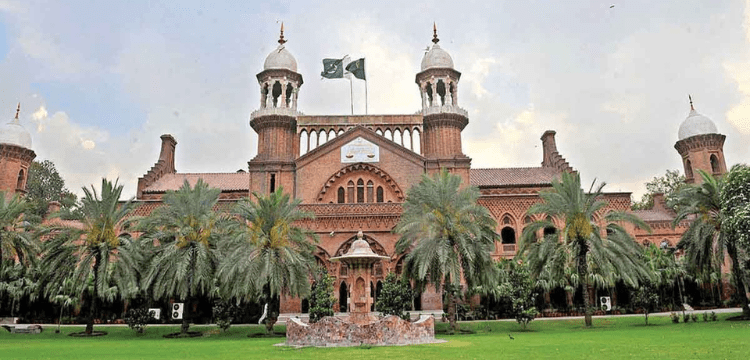[vc_row][vc_column][vc_column_text dp_text_size=”size-4″]LAHORE: The Lahore High Court (LHC) declared sedition laws to be unconstitutional in a landmark decision on Thursday, striking down Section 12-A of the Pakistan Penal Code 1860.
After hearing detailed arguments on multiple pleas requesting that the sedition law be declared null and void, Justice Shahid Karim announced the reserved verdict.
The petitioners had asked the court to strike down the said section, which is not only against the Constitution but also its true meaning.
Despite the fact that politicians and journalists are the most common targets of sedition charges, the federal government defended Section 124-A, claiming that “the section imposed a valid restriction on free speech as long as any spoken or written words have the intention or tendency to create disorder or disturb public peace by resorting to violence against the respective governments.”
The federation’s lawyers strongly opposed the petitioner’s counsels’ arguments that the sedition laws were used “in accordance with the law.”
Also Read: SC five member bench hearing polls delay case dissolved.
Previously, the law ministry stated that “it is a well-established fact that the right to freedom of expression under Article 19 of the Constitution is not an absolute and unfettered right but is subject to reasonable restrictions imposed by law in the interest of the glory of Islam or the integrity, security, or defence of Pakistan or any part thereof, friendly relations with foreign States, public order, decency, or morality, or in relation to contempt.”
Notably, the law applies to “whoever brings or attempts to bring into hatred or contempt, or excites or attempts to excite disaffection towards, the federal or provincial government established by law, by words, either spoken or written, or by signs, or by visible representation, or otherwise.”
On the other hand, the petitioners’ counsel argued that using the said section amounts to depriving people of their fundamental right to free expression.
The petition challenged the constitutionality, validity, reasonability, relevance, and legitimacy of the law that criminalises “sedition.”
It claimed that Section 124-A is “unconstitutional and ultra vires the constitution” because it “blatantly and patently violates Articles 8, 9, 14, 16, 17, 19, and 19-A.”
Also Read: Court suspends Rana Sanaullah’s non bailable arrest warrants.
The petitioners contended that the law in question has been “recklessly used in Pakistan as a tool of exploitation to curtail the right to free speech and expression” since 1947, and that it is “an illegitimate limitation and restriction on the legitimate, legal, and lawful exercise of” one’s constitutionally guaranteed rights.
“Various politicians, journalists, and activists have been booked under Section 124-A of the PPC 1860 in recent years,” the petition continued.
“With each passing day, the intensity of registration of FIRs under Section 124-A is snowballing,” the report said, adding that “almost every criticism of the government or state institutions has been treated as an offence under Section 124-A by law enforcement agencies.”
According to the petition, sedition laws are “a notorious tool for suppressing dissent, free speech, and criticism in free and independent Pakistan.”
Petitioner Haroon Farooq cited lawmakers and political figures such as Mohsin Dawar, Ali Wazir, and Shahbaz Gill, as well as prominent journalists such as Arshad Sharif, Khawar Ghumman, Adeel Raja, and Sadaf Abdul Jabbar, among others.
Farooq maintained that the majority of the aforementioned were facing sedition charges based on “politically motivated,” “vague,” “arbitrary,” and “subjective” interpretations of Section 124-A by law enforcement agencies.
In addition to declaring the section null and void, the petitioners sought the court’s intervention in restraining the respondents from filing any FIRs or taking any coercive action in sedition cases under Section 124-A PPC, 1860 in the interim and during the pendency of the current petition.[/vc_column_text][/vc_column][/vc_row]











